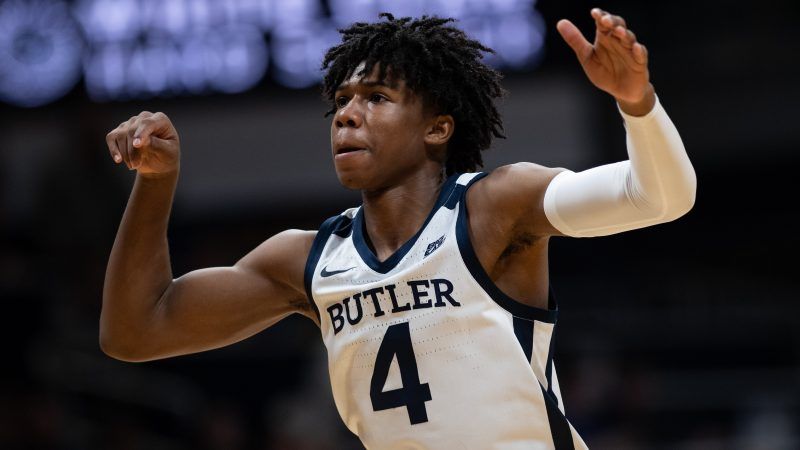NCAA Okays Paying Student Athletes, Republican Senator Immediately Wants to Tax Their Scholarships
Sen. Richard Burr's proposal would heavily deter any student-athlete from getting paid.

"Americans need a break," said Sen. Richard Burr (R–N.C.) in 2017, following the passage of the Tax Cuts and Jobs Act. "Let's put more money back into the pockets of Americans."
Contrast that with his most recent stance on this issue, specifically pertaining to the NCAA's recent decision to allow college athletes to profit off of their name, image, and likeness.
"If college athletes are going to make money off their likenesses while in school, their scholarships should be treated like income," he tweeted. "I'll be introducing legislation that subjects scholarships given to athletes who choose to 'cash in' to income taxes."
The cognitive dissonance is baffling. I thought Americans needed a break?
Previous NCAA rules prohibited student-athletes from monetizing their talent and fame, even as the multibillion-dollar industry rested on their shoulders. California sparked the beginning of the end of that policy when Gov. Gavin Newsom signed the Fair Pay to Play Act last month, which paved the way for athletes in the state to start making money in 2023.
"We must embrace change to provide the best possible experience for college athletes," Michael Drake, the chairman of the NCAA Board of Governors, said in a statement following the group's decision to ease the prohibitive rules nationwide. "Additional flexibility in this area can and must continue to support college sports as a part of higher education. This modernization for the future is a natural extension of the numerous steps NCAA members have taken in recent years to improve support for student-athletes, including full cost of attendance and guaranteed scholarships."
But if Burr has his way, those scholarships would come at a high cost. In practice, this would disenfranchise just about every college athlete that hasn't reached superstar status by the time he or she graduates high school.
Consider a relatively unknown athlete who accepts a full-ride offer to a university at age 17. On average, the four-year price tag at a private institution amounts to $147,204, while an out-of-state student at a public institution pays $90,308. Who would be able to pay income taxes on that enormous lump sum when he or she has no guaranteed income other than a potential revenue-sharing check split countless ways? Only the few athletes with prodigious talent and promise of future sponsorships might opt in. Everyone else would be wise to take the scholarship and simultaneously sign away the right to profit from their hard work.
That would undoubtedly be a slap in the face to the scrappier athletes who improve tremendously in school. Take Steph Curry, for example, who went to Davidson College—which, at the time, sported a no-name basketball program—after Virginia Tech declined to recruit him. Davidson is no longer off the map, and for that, they can thank Curry, who is now a six-time NBA All-Star.
Indeed, Burr's proposition sounds more like an effort to dismantle California's law and the NCAA's subsequent change rather than an attempt to codify sound tax policy. Under his proposal, if a subsidized athlete chose to pursue sports-related moneymaking opportunities, their scholarship would be taxed as if the student were receiving it as a salary. But anyone who has attended college on scholarship knows this is patently absurd. Since when is free tuition equivalent to earning a living?
While the conversation around the new NCAA policy has been dominated by talk of "image and likeness," it also opens the gate for athletes to take advantage of smaller opportunities, as well—prospects that most people may not have assumed were off-limits. "For a tennis star, it could lead to giving paid lessons to recreational players," The Wall Street Journal notes. "For a gymnast with a crowd-pleasing floor exercise, it might mean monetizing a YouTube channel."
All of those avenues—big and little—reflect student-athletes' dedication and ability. Puzzlingly, Burr has spent his time in Congress defending people who use free markets in that same context. Why are athletes any different?


Show Comments (68)